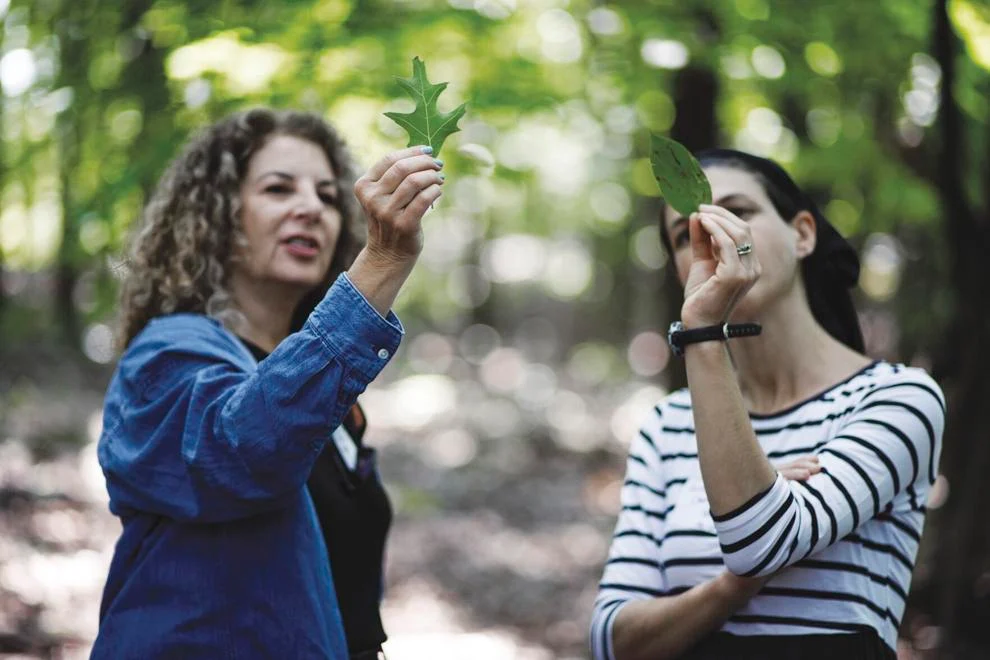Since the Jewish Climate Leadership Coalition’s launch, 12 Michigan-based institutions have signed the founding statement.
In September 2022, Jewish environmental organization Adamah launched the Jewish Climate Leadership Coalition — a network of Jewish community organizations who recognize the existential threat and moral urgency of climate change and commit to take action.
Adamah has facilitated the coalition for 18 months now and, since its founding, over 300 institutions across North America have signed the coalition founding statement and pledged to take climate action.
It’s an initiative launched by Adamah, but also in partnership with 22 founding initiative partners, including Jewish umbrella organizations such as the JCC Association of North America, Jewish Agency for Israel, Jewish Federations of North America and more.
Those partners signed the initial founding statement essentially saying the climate crisis is real, it’s here, it’s affecting us currently and, as Jews, we have a moral obligation to respond to it and we’re going to do so.
Among the 300+ institutions that have signed the founding statement are 12 Michigan-based institutions, including Isaac Agree Downtown Synagogue (Detroit), Adat Shalom Synagogue (Farmington Hills), The Well (West Bloomfield), Temple Beth Emeth (Ann Arbor), NCJW MI (Southfield), Beth Israel Congregation (Ann Arbor), Jewish Ferndale (Ferndale), Temple Kol Ami (West Bloomfield), Michigan Hillel (Ann Arbor) The J (West Bloomfield), and Congregation of Moses and Temple B’nai Israel (Kalamazoo).

These institutions are acting as environmental leaders in the local Jewish community through an array of environmental education and climate actions.
The Jewish Climate Leadership Coalition seeks to decarbonize North American Jewish institutions. The goal is to get 1,500 Jewish organizations to net zero emissions by 2040.
Plans in the Works
This past Tu b’Shevat saw coalition institutions release their first round of individualized climate action plans. Around 200 climate action plans from across North America were submitted. The plans laid out thousands of climate action goals for Jewish institutions in the year ahead.
These climate action plans are designed to look back at what work has been done to date, take stock of opportunities and then lay out that path moving forward.

As far as specific commitments to action in these institutions’ plans, Ari Cohen, program coordinator for Adamah Detroit, says some actions they’ve seen pledged include everything from nature-based Hebrew school curriculum to environmental advocacy initiatives relating to certain pieces of legislation.
“We’ve also seen solar installations, a lot of composting and recycling actions, and energy-efficiency work,” Cohen added, “things like switching out incandescent for LED light bulbs, looking at different pieces of technology that are emerging, and just finding that low-hanging fruit so we can come in and really make energy savings, which will also mean monetary savings for these institutions.”
A benefit for local institutions joining the coalition is they’re able to tap into Adamah’s larger network of resources, events and programming, as well get more one-on-one consulting that goes into putting some of these projects together from ideation through implementation.
Only 18 months in and so soon after the first round of climate action plans, the institutions are currently in the implementation phase.
“We’ve heard back from a lot of coalition members here in the Detroit region who have seen great benefit from this as a space where folks can come together and talk about these issues to alleviate climate anxiety,” Cohen said.
One coalition member from Congregation Beth Israel stated the congregation’s climate action activities have helped its members explore the Jewish tradition of protecting the earth.
“Our accomplishments include a synagogue-wide energy audit, a whole-system design for energy-efficient electrification of our HVAC and kitchen equipment, motivating our teens to write a ‘Psalm for the Earth,’ 100% compostable weekly Kiddush and a community garden,” they said.
“Adamah has provided critical insight and direction, start-up funds and access to other like-minded organizations. We wholeheartedly encourage other congregations to join us in our work to save the planet for future generations.”
For institutions wanting to join the coalition, Cohen says it’s quite simple. It’s a free program to join and three main things are required: sign the initial founding statement, attend a virtual welcome orientation session and, lastly, publish their annual climate action plan on the first Tu b’Shevat after joining.
Cohen says the climate conversation being started at each of these respective institutions is incredibly impactful, and he’s happy to see them charting the path forward for what they want to see in terms of the environmental sustainability of their institution.
“As a young Jewish professional, it is really inspiring and uplifting to see that there are a collection of Jewish individuals, organizations and institutions who have stated that the environment is a priority to them, and they are putting the action behind those words,” Cohen said.
Nationally and in Detroit, the coalition is looking to grow its numbers. For local institutions interested in learning more and possibly joining, reach out to Cohen at ari.cohen@adamah.org or Detroit@adamah.org.
